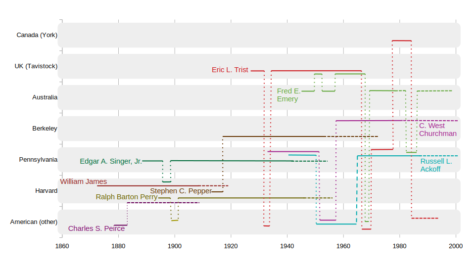For the November 2023 Systems Thinking Ontario session, historian and policy advisor Dr. Michael Bonner was invited for an interview by Zaid Khan. In organizing the sessions, we’re trying to avoid the trap of systems thinking becoming a discipline, through learning with a sweeping-in process.
The session opened on a map of The Sassanid Empire c. 620 CE, also known as Second Persian Empire, a high point for the Iranian civilizations before the early Muslim conquests of the 7th–8th centuries.
As the web conference participants introduced themselves, the number of responses with a strong background in history was low. Zaid led the interview of Michael with some probing questions:
- How did you come to the study of history and its overlap with your work?
- Can you draw on the methods that help historians to ask the right questions when historians are dealing with multiple worldviews?
- How do you relate between the two modes of analytical and synthetic thinking?
- How do historians grapple with drawing boundaries around the areas/topics of study that they look at?
- In historical synthesis, at what point does the author may form a narrative that captures their analysis and synthesis?
- How did you approach the narratives – clarity, beauty, order – that you form in your latest book In Defense of Civilization?
Further into the meeting, others were invited to join in with their questions and comments.
This recording of the session is available on Youtube, as well as on the Internet Archive .… Read more (in a new tab)



